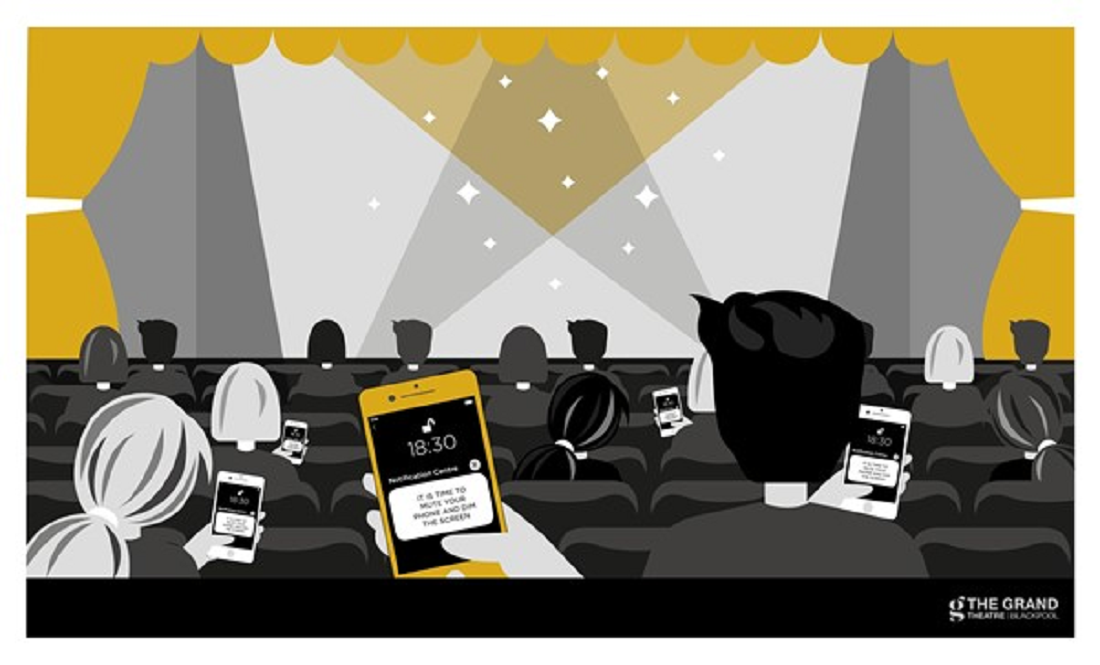
Photo: Blackpool Grand Theatre
Theatres and AI: the brave new world ahead
While theatres are in lockdown it’s difficult to look ahead. But Andrew Howard sees technological change as driving a new and better customer experience in the future, and that change is almost upon us.
The survival of the arts industry is hanging in the balance. Relying on government funding lifelines and planning for Covid-safe and financially viable performances to avoid complete closure and help theatres get back on their feet. But for them to operate in the long-term, they will have no choice but to start adopting new technologies. From transformations in ticket booking, to heat mapping at bars and automated messages for audience members; the future of theatre will involve harnessing the power of AI to transform the theatre experience and help the industry flourish post-pandemic.
Blackpool Grand Theatre has taken up the challenge, recognising the need to pivot their internal strategy to embrace more technological features that will help them hit the ground running when theatres reopen. The theatre’s vision for the future has three clear dimensions: the booking journey, the audience experience and extended customer engagement.
As a result of AI, systems are becoming smarter and more personalised and it’s clear the future will look very different from the past. They can delivering them a 360° real-time overview of the business based on collected and connected data, which is enriched and analysed to provide a deeper insight into customers and inform decisions.
The future of booking
SMART-booking theatre tickets using voice through a watch or home speaker will undoubtedly grow in popularity, allowing bookers to ask Alexa or Siri ‘Book me two tickets to the Russian Opera at Blackpool’s Grand’, and Siri to respond ‘The seats you had last time you attended are available, would you like them again?’ Accept this, and you will receive an electronic ‘Live Ticket’ to your SMART device.
This Live Ticket will sit in your phone wallet and the theatre will be able to update it at any time, with casting biographies or announcements, behind the scenes video and imagery, reviews, concession offers and vouchers all in one place, attached to it. Car parking passes, public transport tickets and pre-paid taxis can all be linked too.
For the venue it will allow faster returns and even seating updates. Because if the seat you wanted has already been taken, new systems will allow you to be placed on a reserve list for it, if it becomes available. The systems will be able to automatically move your seat, bill you, update your wallet’s ‘Live ticket’, and send you a notification – all in real-time.
More personalised experiences will be offered, based on consumer data previously gathered and stored, such as special birthday messages for audience members.
The audience experience
Sensors and software in the theatre building will be able to unlock added opportunities for offering more services, based on gathering deeper insights into consumer behaviour.
Staff needing to check tickets could be a thing of the past, with customers automatically registered as they step through the front door, given a welcome and offered relevant guidance like waiting times to entry, best bars to head for, and where to go for personal or accessibility assistance. It’s also an opportunity to develop ancillary income: for instance, people entering the bars before a show starts, or during the interval, could receive vouchers for a cocktail offer on their next visit, based upon their previous spending habits.
If you have pre-purchased a programme this will be digitally sent to your phone, and you will be given details of the next upcoming production by the company you are seeing, including a simple ‘one click book’ option.
Sensors will enable customers who have taken their seats prior to a show starting to be sent a message on their phone, advising them to turn down the volume and brightness. But further into the future we will see individually controlled seats with heat/cool mats for each person to control their own individual ideal temperature preference with SMART phone Bluetooth control. And one day, walking into the auditorium will activate a pre-set ‘theatre-mode’ meaning you do nothing; your phone knows what it needs to alter.
Interval bars will become more accessible. Technology is already in place in some arenas and stadiums to work with SMART TV screens which advise customers where the quietest bars, confectionary and merchandise points are based on heat-mapping of till transactions, in turn benefiting customers with faster wait times.
For anyone who doesn’t want to go to the venue, but does want to see the show, livestreams will also be a possibility, allowing theatres to widen their audience reach through offering theatre productions that can be enjoyed in the comfort of home.
Convenience wins
With adoption of technology and an understanding of customer behaviour through AI, a better customer experience can be delivered from first engagement to departure. The theatre industry may be steeped in tradition, but that’s no excuse for us to adapt our systems and processes to meet the demands of consumers who will increasingly be thriving on convenience.
Andrew Howard is Marketing Manager at Blackpool Grand Theatre
![]() blackpoolgrand.co.uk
blackpoolgrand.co.uk
Join the Discussion
You must be logged in to post a comment.